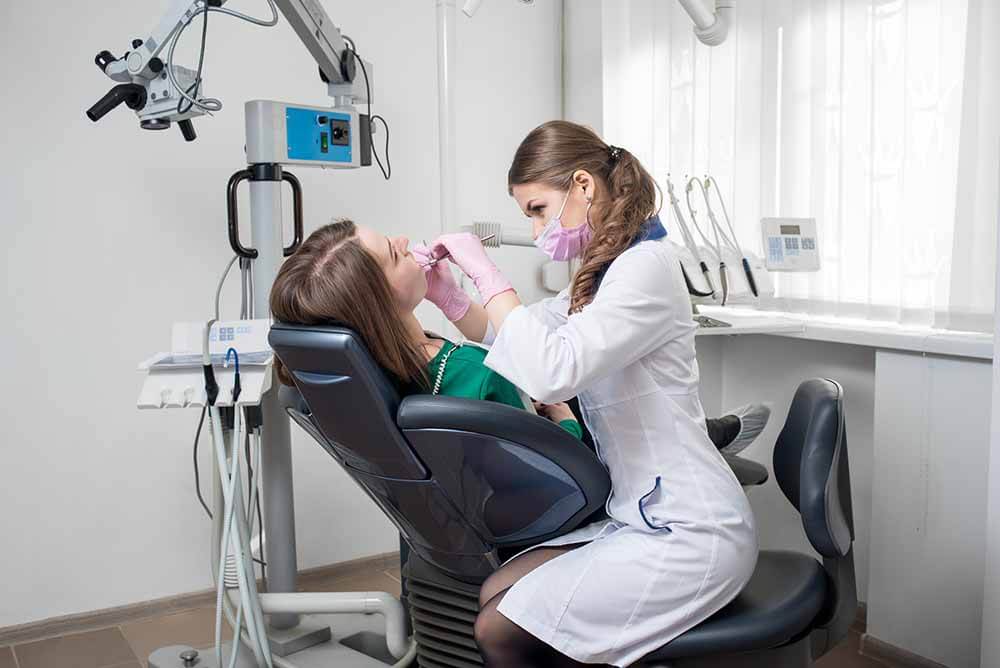
Dental implants are synthetic tooth roots that are designed to anchor replacement teeth. They are surgically placed into the jawbone. There are several things that you need to know about dental implant surgery.
What Type of Side Effects Will I Experience After Dental Implants Are In?
Dental implant surgery is extremely safe, and most people do not have any complications from implants. However, it is important to note that you may have side effects. Pain is one of the most common side effects. The anesthesia that is used during the surgery will numb the pain. However, you will likely experience pain a few days after surgery. In most cases, pain can be alleviated with over-the-counter medications.
Keep in mind that Aspirin can increase the risk of bleeding. That is why dentists recommend using Aspirin-free medication. Your dentist can also prescribe you a medication, which may be more effective than over-the-counter medications.
Swelling, which is another common side effect, is a natural reaction to surgery. Swelling is most likely to occur around the incision site. Swelling will typically go away on its own. You can use ice to reduce swelling.
You can also experience bruising after surgery. You may notice bruising on your cheeks. Surgery can also cause internal bruising. Talk to your dentist about how you can avoid potential complications from dental implant surgery.
Serious complications are extremely rare. However, they have to be treated as soon as possible. An infection can develop at the incision site. An infection has to be properly treated because it can spread to other parts of the body. Most infections can be cleared with antibiotics. Nerve damage and sinus problems are other possible side complications of dental implant surgery.
What’s Next After Surgery?
Your dentist will give you a list of instructions that you will have to follow after surgery. For example, you will likely be advised to avoid using tobacco while you are recovering. If you use tobacco, then the healing process will slow down.
You will need to attend all of your follow-up appointments. The purpose of the follow-up appointments is to ensure that you are recovering properly. If you have any questions about your recovery, then you will need to ask them during your follow-up appointments.
What Foods Can’t You Eat?
Following the proper diet is one of the keys to recovering from dental implant surgery. You will need to avoid eating hot and spicy foods after your surgery. Hot and spicy foods can irritate the incision site.
You will also need to avoid consuming alcohol. If you consume alcohol, then you may delay the healing process. Alcohol has a tendency to increase pain and swelling.
You will need to avoid eating chewy or sticky foods. These foods can cause discomfort because they require a lot of chewing. Additionally, foods like popcorn, chips, nuts, crackers and candy should be avoided. Small pieces of those foods can get stuck in the incision site, which can cause an infection.
Which Foods Should I Eat After Surgery?
- Applesauce is a great food to eat after surgery because of its texture. It is also high in vitamin C and dietary fiber. Additionally, eating applesauce does not require a lot of jaw movement.
- Broth-based soups are another great food to eat after dental implant surgery. The soup should be warm, not hot. Broth-based soups are a great source of protein.
- Mashed potatoes are soft and high in fiber. You can add cheese, gravy, and butter to your mashed potatoes in order to add flavor.
- Yogurt is a great option if you are craving something sweet. Avoid yogurt with nuts and candy.
- Instant oatmeal can be eaten a few days after surgery. You want to wait a few days to eat oatmeal because the oats can irritate your gums.
Tips to Consider After Dental Implant Surgery
You should try to avoid touching the surgical area as much as possible. You can brush your teeth after surgery, but you will need to avoid coming in contact with the incision sites. Your dentist will tell you when you can brush the incision areas.
You can use warm salt water to keep your mouth clean. You will need to put anywhere from 1/4 tsp to 1 tsp of salt in eight ounces of water. Gently swish the salt water around your mouth for about five minutes. You can repeat this process two or three times per day.
If you choose to use a cold pack to reduce swelling, then you will need to apply the pack for 20 minutes at a time. Wait 20 minutes before using the ice pack again. You only need to do this for the first 24 hours.
Exercising after oral surgery can wait, it’s best to start back up when you’re fully healed, as well as getting the green light from your doctor. It is best for you to start off with low-impact exercise in order to minimize the risk of bleeding. Yoga, stretching exercises, walking and light strength training are examples of some of the exercises that you can do after your dental implant surgery. Exercise can help improve blood circulation. This can speed up the healing process.
Dental implant surgery can change your life for the better. However, there are several things that you will have to do in order to ensure that your surgery is a success.



